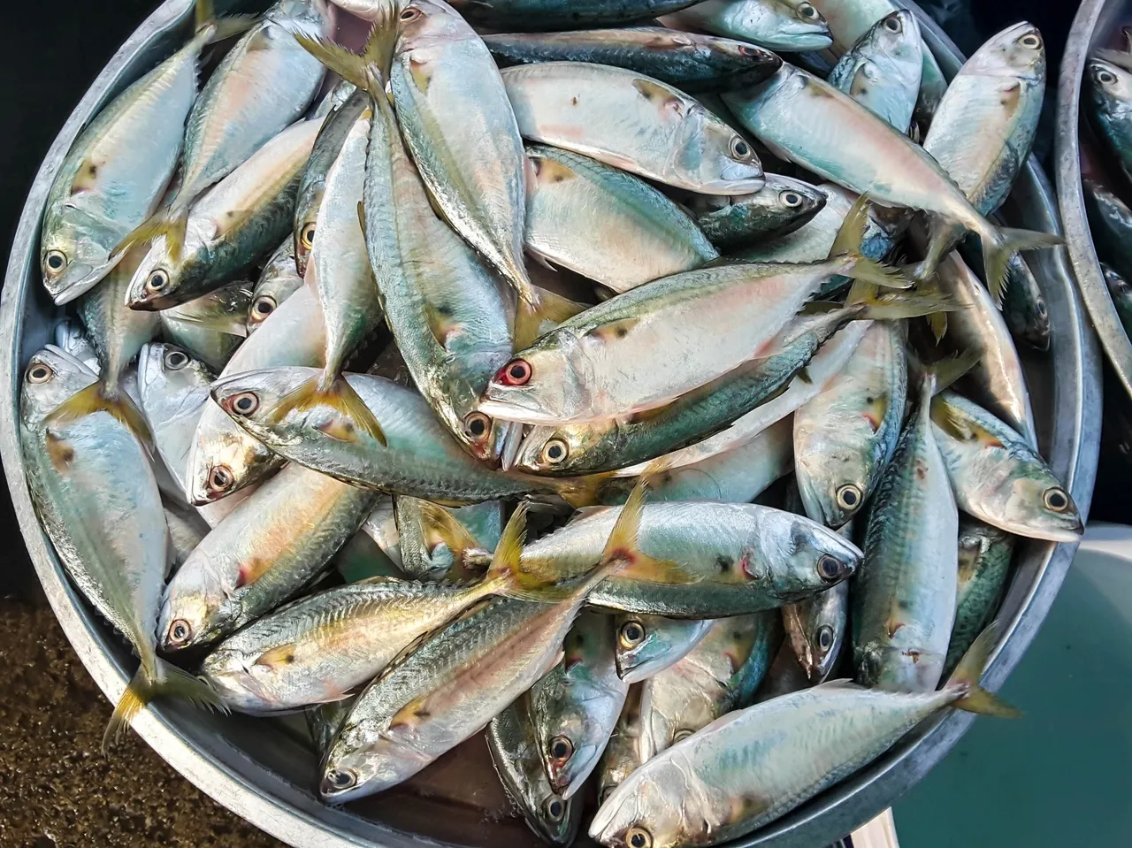Celebrating the silver darlings of the sea - the humble herring

Pickled, soused, barbecued or fried, herring was once a cheap, nutritious source of protein but over-fishing and changing consumer tastes led it to fall out of favour. Now with pressure on popular varieties like cod and haddock, herring is a sustainable choice again.
On a blustery November day in North Devon, two fishermen land the day’s catch. Wrapped in waterproofs for protection against the chilly wind, they half slop, half tip gallon after gallon of their cargo into a large plastic container. They are brothers Stephen and Tommy Perham, and their catch today is herring. They are the last remaining fishermen of Clovelly’s herring fleet, and November marks for them the start of the British herring fishing season.
The chocolate box village of Clovelly, with its thatched cottages and steeply cobbled streets, attracts many thousands of visitors every year. Here herring fishing once dominated the local economy and records from 1749 show it once boasted a one hundred boat fleet that could land up to 9,000 fish at a time. Now in its 38th year, the Clovelly Herring Festival is not only the oldest known festival of the herring but also one of the Devon’s best known winter attractions. To brave the cold and come to Clovelly in November is to revel in its special feast of smoked kippers, maritime crafts, sea shanties and local cider. And though herring is still much loved in the kitchens of Clovelly, rising living standards have suffocated the market for the fish elsewhere. Hastings, like many seaside towns, is determined to preserve its fishing heritage. Here a fleet has fished the local waters for over 400 years and keeping the tradition alive is Hastings Fish, which was set up to promote sustainable fishing. Year round, visitors come early to a battered wooden hut on the beach to buy fish so fresh it’s barely off the boat. Then in November they come back, when the sea is brooding and grey, for the food stalls, to learn about seasonal plates at cookery demonstrations, listen to sea shanties on the beach or to try traditional net-making run by the local Fishermen’s Protection Society.
In Hemsby, near Great Yarmouth, the Herring Festival takes place in August. Paul Williams owns a fish shop in the town. He is one of Great Yarmouth’s last herring fisherman and nets, catches and smokes. From his catch he selects some for bloaters, some for kippers and the rest for red herring – salted for three days, then smoked for six weeks. On this part of the coast the fish are caught year-round but he says it’s in October when they’re full of roe, that they’re at their best.
The Marine Conservation Society wants us to eat more of this cheap, nutritious fish and less of popular fish varieties to keep fishing sustainable. Bernadette Clarke, from its Good Fish Guide, suggests that lesser known varieties like dab, hake and herring become the new cod, haddock, salmon and tuna: “By choosing from a wider range we’ll be putting far less stress on individual fisheries” she says.
Though still low, consumption of herring has been boosted by celebrity chefs whose simple dishes have made fish-shy home cooks give it a go. Chef Rick Stein advises against novice cooks being put off by the smell “Even notoriously smelly fish such as sardines should smell good when they’re fresh, “he says “so trust your instincts – gills should be pink or red and the fish should have clear, bright eyes”.
Prepare it yourself, or take the easy option and let your Waitrose fishmonger gut, scale and fillet it for you.
